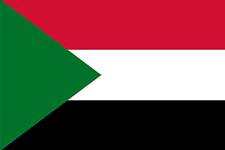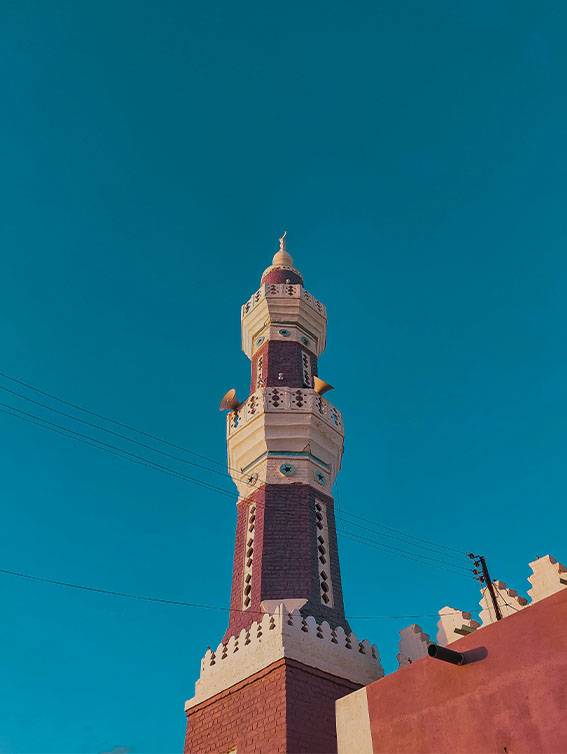SUDAN
Marhaban" (مرحباً) - Welcome
In Sudan we provide international relocations by sea and air, pet relocation, local moves, office moves and storage. We also provide an essential import and export service by sea and air, for international AID agencies. The best quality mover.
OUR TEAM
Worldwide Movers Africa (Sudan) was founded in 2016 and our team offer full origin and destination services. Under Ronald Mutesasira’s experienced directorship the team have been trained to the highest standards and provide Worldwide Movers Africa’s “gold standard” service.
Founded on customer service, hard work, dedication and staff training our business continues to grow and has an excellent reputation for good communication and quality of service.
Our hard working team are knowledgeable, experienced and have extensive removal skills. We have comprehensive export/import, freight and customs formalities abilities.
Our team attend annual workshops and overseas conferences with agency network partners. We are proud of our reputation as Africa’s Gold Standard of the relocation industry.

Ronald Mutesasira
Director
Ronald is a star in the Worldwide Movers Group. Always bringing a big smile and ideas to our meetings. He has years of industry experience in Eastern Africa and prides himself on giving his clients a Gold Standard service.

COUNTRY PROFILE

Capital: Khartoum.
Population: Approximately 45 to 50 million people, making it one of the most populous countries in Africa.
Language: Official language Arabic. English is widely used, particularly in government, education, and business. Numerous indigenous languages including Beja, Nubian, Fur, Dinka, and others, varying by region and ethnic group.
Government: A transitional government with both civilian and military leaders tasked with leading Sudan to democracy.
GDP: 51.66 billion US$
GDP: per capita: 1102.1 US$
Currency: Sudanese pound (SDG).
Sudan is in North-East Africa, bordered by Egypt, the Red Sea, Eritrea and Ethiopia, South Sudan, the Central African Republic, Chad and Libya. It's the third-largest country in Africa by area.
Sudan has a history of political instability and conflict, including a long-running civil war between the north and south which ultimately led to the secession of South Sudan in 2011. In April 2019 a major political upheaval ousted President Omar al-Bashir. A transitional government was formed consisting of military and civilian leaders tasked with leading Sudan to democracy.
Sudan's economy is mainly agricultural, with crops such as sorghum, millet, wheat, and cotton. The country also has significant natural resources, including oil and minerals such as gold. However, Sudan's economy has been negatively impacted by decades of conflict, economic mismanagement, and sanctions.
Sudan has a rich cultural heritage influenced by its diverse ethnic groups, including the Nubians, Beja, Fur, and others. Traditional music and dance are important in Sudanese, with various styles and rhythms reflecting different regions and ethnic groups. Sudanese cuisine is diverse and often includes dishes such as ful medames (fava beans), kisra (a type of flatbread), and various meat and vegetable stews.
Islam is the dominant religion in Sudan, with the majority of the population adhering to Sunni Islam. There are also small Christian and indigenous religious communities in Sudan, particularly in the southern regions and among certain ethnic groups.
Sudan has diverse natural habitats, including deserts, savannas, and wetlands. The Sahara Desert covers much of northern Sudan, while the southern regions are characterized by more fertile land and tropical climates. Wildlife, include species such as lions, elephants, giraffes, and various types of antelope.

FURTHER INFO
Sudan has a network of roads connecting major cities and towns. While some roads are paved and well-maintained, others may be in poor condition, especially in rural areas. Four-wheel-drives are best in rural areas.
Buses and minibuses operate in major cities and towns. They are cheap, crowded and may not have reliable schedules.
Taxis can be hailed on the street or booked through phone apps providing a convenient way to travel within cities and towns. Negotiate your fare with the driver.
The limited railways operated by Sudan Railways Corporation connect major cities like Khartoum, Port Sudan, and Atbara.
The Nile River is a significant transport route in Sudan, especially for cargo transport. Riverboats and ferries operate between cities and towns along the Nile.
Sudan Airways and Tarco Air operate domestic flights which connect major cities and towns across Sudan, providing a fast way to travel, especially for long distances.
In rural and remote areas, camels and donkeys are used for transportation, especially for goods and materials that cannot be easily transported by road or river.
Sudan can be affected by seasonal weather, security concerns, and travel restrictions.Road travel outside major cities needs careful planning and consideration of safety precautions. Stay informed about local conditions, follow travel advisories, and exercise caution when using public transportation or travelling by road.
Khartoum 2, K2, is one of the most affluent neighbourhoods in Khartoum. It has many embassies, international organisations, and diplomatic residences. The area offers upscale housing options, restaurants, cafes, and recreational facilities.
Amarat, in the southeastern part of Khartoum has spacious properties, international schools and a family-friendly atmosphere.
Riyadh is a new development to the south of Khartoum. It offers modern housing complexes, shopping malls, and recreational facilities.It is popular for to its modern amenities and upscale living options.
The Gardens, Al-Mamoura, near the University of Khartoumhas a peaceful environment away from the city centre with lush greenery and upscale housing options.
Al Taif has luxury villas and apartment complexes on the southeastern side of Khartoum with shopping centres, restaurants, and fitness clubs.
Al Amarat is near the University of Khartoum with a mix of housing options and supermarkets, cafes, and schools.
Al Manshiya near the Blue Nile River is known for its tranquil atmosphere. It is popular among expatriates looking for a peaceful residential area.
Look for international schools that follow recognised curricula, such as the International Baccalaureate (IB) or British or American educational systems.
International School of Khartoum (ISK): International Baccalaureate (IB) Primary Years Programme (PYP), Middle Years Programme (MYP), and Diploma Programme (DP) International School of Khartoum
Khartoum American School (KAS): Khartoum American School
Unity High School (UHS): Khartoum. International General Certificate of Secondary Education (IGCSE) and Sudanese National Curriculum Unity High School
International Community School Khartoum (ICS): IB, PYP International Community School Khartoum
German International School Khartoum (GISK): German and Sudanese German International School Khartoum
British Educational Schools (BES): Khartoum, British National Curriculum British Educational Schools
Ensure that the schools are accredited by relevant educational authorities or international accreditation bodies.
Consider the curriculum offered by the school and whether it aligns with your child's educational needs and future plans.
Check the school's facilities, resources, and extracurricular activities to ensure a well-rounded education.
Aim for accommodation and schooling within a sensible commute!
Stay safe, be aware of your surroundings and take precautions.
Research: Learn about the city and which areas are safe. Stay updated on local news and events, travel advisories or safety alerts issued for the city.
Accommodation: Use reputable well-reviewed accommodations. Look for good security measures. Use reliable booking platforms to ensure your reservation is legitimate.
Transport: Use licensed and reputable transport options. Avoid travelling alone late at night and use well-lit and busy routes.
Avoid Risky Areas: Be cautious in unfamiliar or poorly lit areas, especially at night.
Personal Belongings: Keep your belongings secure. Use anti-theft backpacks or money belts. Be cautious with flashy jewellery, expensive gadgets and large amounts of cash.
Contacts: Contact locals or expats who can give you guidance. Share your plans with someone you trust. Know the local emergency numbers (police, medical, fire). Carry a list of contacts, including the nearest embassy or consulate.
ITC: Use secure Wi-Fi connections and consider using a VPN. Keep your devices charged and have a backup power source.
Language: Learn some basic phrases in the local language, especially those for seeking help or directions.
Cultural Sensitivity: Respect local customs and traditions. Dress modestly in areas where it is appropriate.
Health Precautions: Be aware of health risks and take necessary vaccinations. Carry necessary medications and know the location of local medical facilities.
Trust Your Instincts: If a situation feels uncomfortable, remove yourself from it. Trust your instincts and be cautious about accepting invitations or assistance from strangers.

FAQS
Moving costs are based on factors such as:
The volume and weight of your belongings
Whether your belongings are being shipped by air, sea or road (or a combination)
Your origin and destination
Any special requirements you have such as crating for art work
Ease of access to your property
Additional services requested
Please provide our surveyor and operations manager with as much information as possible.
We use the assessment made by our surveyor and the information you provide to calculate your quote.
As each move is unique our service usually begins with a survey. Our surveyor will estimate the volume of goods to be shipped and the materials needed. He will listen carefully to any special instructions or requests you may have. He will also make an assessment of the property checking for any access issues (narrow gates or height restrictions) and look at lift access and staircases.
We have teams of highly experienced professional packers
We use high quality and appropriate materials to protect and pack your belongings
* You should not pack your own belongings
Many countries will not allow entry of goods that have been packed by their owners (PBO). This ensures no prohibited items are shipped with your belongings.
Any boxes labelled PBO are very likely to be opened and searched by customs officials
Our teams will produce a detailed packing list which they will ask you to sign
We do not ship prohibited goods, such as:
Ivory or furs, drugs, weapons, hazardous materials or perishable items.
Each location has its own export and import regulations. Our teams will be able to advise.
We do not pack keys or passports (you will need those)
It is recommended that you carry any small high value items, such as jewellery, rather than having it shipped with your goods
Your normal household insurance is unlikely to cover your goods in transit.
We offer protection cover for your move including marine insurance.
Your shipment may be insured by your origin agent if you are importing your goods to us.
It is very important that you complete a detailed valued inventory of your goods as one box may contain items of much greater value than another.
Please read our terms and conditions for information on liability.
It helps if you are organised.....
Make sure you have applied for any visas or permissions you will need and have your passports up to date and ready
Dispose of or sell any items you do not wish to take
Separate items to be shipped from those to remain
Separate items to be shipped by air and those to be shipped by sea (if appropriate)
Label or attach stickers to the items to be packed
Organise school books or your children's much loved toys
From start to finish the entire moving process has a number of steps:
Survey - please book your survey as far in advance as is practical
Quote - once your survey is done our team will contact shipping line and destination agents. Once all this information is in and collated we can provide you with a quote/estimate.
PLEASE NOTIFY US OF ANY CHANGES
Packing dates - we can be very busy especially at peak packing time in the summer months. We will always aim to pack on or close to your preferred dates when possible
Transport to port
Export clearing
Loading onto shipping vessel
Transit by sea or air - this can take a day to several weeks. We can give an estimated time of arrival (ETA) to help you with planning. However, many things affect the transit time and are out of our control: technical issues, weather, international incidents, port congestion etc. Your shipment is tracked and the ETA adjusted accordingly.
Offloading from the vessel
Import clearing
Transport to storage or your new home
Unpacking and debris removal
We will provide you with a comprehensive and detailed quote for our services which should highlight any exclusions.
DUTY AND TAX: Customs/import duty is imposed when people bring goods into a country. Duty can vary widely depending on the country and its specific customs regulations. Personal belongings and household goods are sometimes duty free or have a reduced rate. Exemptions or reductions may apply to some individuals, such as expatriates on short-term assignments and diplomats. Depending on the country there may be other taxes and levys charged on your shipment.
A customs declaration including a detailed inventory, packing list, and relevant identification documents is crucial for smooth customs clearance. Some countries may require additional documents, such as a visa, work permit, or proof of residence. We can provide guidance on the documentation required and potential duty implications.
DEMURRAGE: Demurrage is charged by a shipowner for any delay in loading/unloading a vessel or returning the container beyond the allowed free time. Delays can arise for many reasons including port congestion, customers not presenting the required paperwork on time etc
Free time is generally about 5 days for an air import and 7 days for a sea import (including weekends and holidays). Charges are calculated on a daily rate for each day beyond the free time.
We are unable to include demurrage charges in our quote as they vary. You, your origin agent or your company are usually responsible for paying demurrage. It is important for us to know who to contact so that they can be paid efficiently, the container is released and further unnecessary charges are not incurred.
OTHER
Inspections - Your shipment may be selected for inspection or X-Ray by officials for which there will be an additional fee.
Storage - We are able to store your household goods for you if for example your new home is not ready. We charge warehouse handling and storage for this service.
Handyman - We offer other services such as a handyman if you need other work such as putting up curtains, electrical work, assembly of IKEA furniture and so on....
Out of Hours - Additional may be incurred if you require us to work after hours, on weekends or public holidays.
International relocation of pets involves careful planning and adherence to regulations to ensure the safety and well-being of your furry friends.
We have moved many pets all over the world including USA, UK, many EU countries, New Zealand, Australia, Cyprus, Thailand, Singapore....
Pet import requirements and regulations vary and some countries have strict rules and timelines to which you must adhere.
Ensure that your pet has a compliant microchip registered with your contact information.
Visit your veterinarian well in advance and ensure your pet is up-to-date on all vaccinations required by the destination country. Give parasite treatments according to the regulations of the destination country. Obtain a health certificate issued by a licensed veterinarian shortly before travel.
An import permit may be required by the destination country. Obtain the necessary permits and ensure compliance with any waiting periods. Be aware of any quarantine requirements in the destination country.
You will need an IATA and airline-approved travel crate that provides enough space for your pet to stand, turn around, and lie down comfortably. Familiarise your pet with the crate before travel. Include familiar items like blankets or toys in the travel crate (but no choking hazards). Ensure access to water and any necessary medications during the journey.
We organise the door-to-door relocation of pets, from collection at your residence, booking with the airline, airport procedures and processing, arranging a destination agent and hand over or delivery to your new home. We select an airline we trust with experience in transporting pets. We consider the travel time, any transfers and their location so that we choose the best route for the comfort and safety of your pet/s. Some airlines have specific pet travel programs.
You will need to provide original copies of all your pets documents. We will also need your old and new address and contact information.
NB: Do not give your pet any sedative or calming medications/supplements - these can have devastating affects at altitude. We will refuse to ship your animal if we suspect it is sedated.
We can also relocate other animals and always adhere to regulations. If your pet is CITES listed you will need to provide the correct paperwork.
TESTIMONIALS
Dear Charles and William,
We would like to thank you, all of you, for the very good job you have done. Your team, this morning, was efficient and competent. We will have the pleasure to work with you again. Thank you very much.
Kindest regards Helene

Why Choose Us?
With over 30 years of experience on the African Continent, Worldwide Movers Africa has the knowledge and dedication needed to successfully move your belongings.
CONTACT THE SUDAN TEAM
Contact Details
Ronald Mutesasira
Tel: +249 960 220220
Email: wwmaf@wwm-sudan.com
Address
Worldwide Movers Sudan Ltd.
Block 63
House no. 327
Al Mamora Juba Street
Al Taif Khartoum,
Sudan






























